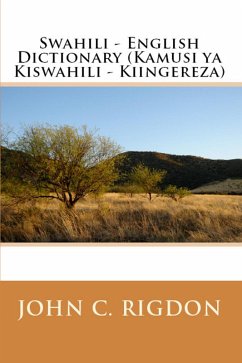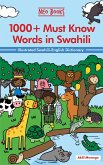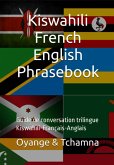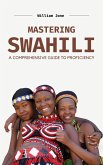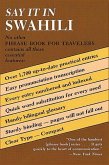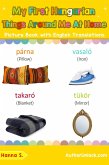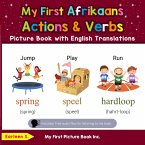Spoken originally along the eastern coast of Africa(the name kiSwahili means 'coastal language'), and now the official language of Tanzania as well as a major language in Kenya, Uganda and the eastern Congo, Swahili is the lingua franca of Eastern Africa. A significant fraction of Swahili vocabulary is derived from Arabic through contact with Arabic-speaking Muslim inhabitants of the Swahili Coast. It has also incorporated German, Portuguese, English, Hindustani and French words into its vocabulary through contact with empire builders, traders and slavers during the past five centuries. The earliest known documents written in Swahili are letters written in Kilwa in 1711 A.D. in the Arabic script that were sent to the Portuguese of Mozambique and their local allies. Another ancient written document dated to 1728 is an epic poem in the Arabic script titled Utendi wa Tambuka (The History of Tambuka). One key step in spreading Swahili was to create a standard written language. In June 1928, an inter-territorial conference took place at Mombasa, at which the Zanzibar dialect, Kiunguja, was chosen to be the basis for standardising Swahili. Today's standard Swahili, the version taught as a second language, is for practical purposes Zanzibar Swahili. Swahili has become a second language spoken by tens of millions in three African Great Lakes countries (Tanzania, Kenya, and the Democratic Republic of the Congo (DRC)) where it is an official or national language. The neighbouring nation of Uganda made Swahili a required subject in primary schools in 1992. Some 80 percent of approximately 49 million Tanzanians speak Swahili in addition to their first languages. Many of the rising generation of Tanzania, however, speak Swahili as a primary language because of a decrease of the traditional cultures and the rise of a more unified culture in urban areas. Kenya's population is comparable as well, with a greater part of the nation being able to speak Swahili. Most educated Kenyans are able to communicate fluently in Swahili since it is a compulsory subject in school from grade one to high school and a distinct academic discipline in many of the public and private universities. The five eastern provinces of the DRC are Swahili-speaking. Nearly half the 66 million Congolese reportedly speak it, and it is starting to rival Lingala as the most important national language of that country. Swahili speakers may number 120 to 150 million.
This English - Swahili and Swahili - English Dictionary (Kamusi ya Kiswahili - Kiingereza), contains 11,000 entries. It is based on our Words R Us - Wordnet implementation, which enables pairing the Swahili language with hundreds of others. It was created using dozens of sources including academic papers on the language as well as native speakers.
This dictionary is one of several resources we have for Swahili. In addition to this Swahili Dictionary matched with other languages, we publish a Swahili Picture Dictionary (Picha ya Picha Kiingereza / Kiswahili), and a Swahili / English Phrasebook.
Dieser Download kann aus rechtlichen Gründen nur mit Rechnungsadresse in A, B, CY, CZ, D, DK, EW, E, FIN, F, GR, H, IRL, I, LT, L, LR, M, NL, PL, P, R, S, SLO, SK ausgeliefert werden.

